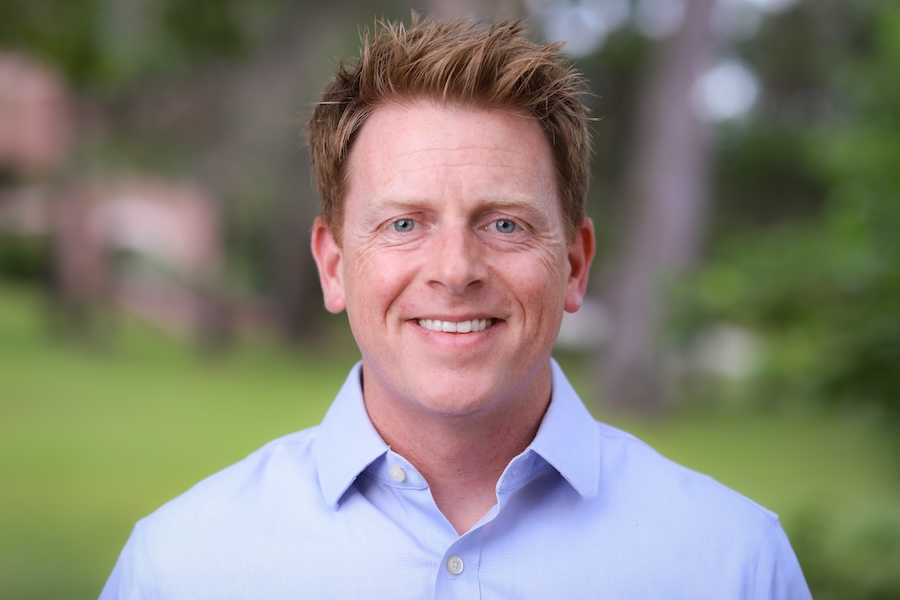Faculty Spotlight: James Frederich

James Frederich is an associate professor in the Florida State University Department of Chemistry and Biochemistry, part of Florida State University’s College of Arts and Sciences. His research focuses on the chemical synthesis of biologically active natural products, which may hold promise for the design of new medicines. Frederich earned his doctorate from University of California, Irvine in 2011 and joined FSU's faculty in 2014 after completing an American Cancer Society postdoctoral fellowship at the University of California, Los Angeles. Most recently, Frederich was among eight faculty members to earn a 2024 Developing Scholar Award from FSU.
Tell us a little about your background.
I grew up in Oregon and am a first-generation college student. During my undergraduate years at the University of Oregon, my interest in pharmacology and chemical biology led me to consider a career as a medical doctor. However, after shadowing health care professionals, I discovered my passion is research rather than patient care. I was eager to find a job in academia, and of the opportunities available to me, FSU stood out as the most exciting. I had never been to the East Coast before, let alone Tallahassee. Now, I’ve been here for 10 years.
Can you break down your area of research for us?
Our work at the Frederich Laboratory sits at the crossroads of chemical synthesis and molecular pharmacology. We build complex molecules from natural sources such as plants, animals and microorganisms, a process known as complex molecule synthesis, with the intent of advancing drug discovery and development. The type of molecules we create are called natural products, which can have significant medicinal effects within the body. A prominent example is aspirin, one of the first drugs where researchers identified the active ingredient from a plant extract and mass-produced it.
Our current focus lies in terpenes, natural compounds with promising applications in treating drug-resistant cancers. Terpenes are largely responsible for the flavor, aroma and even color of most plants, including aromatic herbs like rosemary. Unlike traditional cancer therapies that harm healthy cells, we aim to develop targeted therapies that selectively attack cancer cells, which would represent a significant advancement in oncology.
Two main challenges in drug discovery are ensuring drugs effectively target tissues and minimizing side effects. Natural products evolved to work well within living systems but accessing them can be difficult for researchers. Natural products can rarely be isolated in practical quantities from their natural sources, therefore, they need to be assembled in the laboratory. Our goal is to make natural products more accessible, develop new synthetic methods, and explore the potential medical applications of our targets.
What inspired you to study natural products for potential use in medicine?
Following my doctorate, I pursued a postdoctoral position at University of California, Los Angeles, funded by the American Cancer Society, where we focused on creating complex molecules for treating drug-resistant cancers. This experience inspired me to explore natural sources for designing biologically functional molecules.
Can you share an exciting breakthrough in your research that you're passionate about?
We've created a new strategy to synthesize key structures found in various bioactive terpene natural products using a technique called photoisomerization — using light to trigger molecular changes so we can transform simple molecules into far more complex ones. We synthesized a structure using this method that could lead to a treatment for drug-resistant glioblastoma, a type of aggressive brain tumor.
Do have any exciting upcoming projects?
The success in synthesizing structures to create a treatment for drug-resistant glioblastoma inspired us to establish a small company called Cypris Therapeutics in 2024. It’s focused on developing a new treatment for drug-resistant brain cancer. It's been an exciting journey to combine scientific research with industry practices and explore new pathways in drug discovery and development outside academia.
What does receiving the 2024 Developing Scholar Award from FSU mean to you?
It’s a testament to the hard work of my graduate students and postdocs who take my initial ideas and turn them into meaningful research projects. While I may be the recipient, awards such as this belong to my entire team.
What is your favorite part of your job?
Mentoring passionate graduate students and witnessing them become independent scientists is the best part of my job. Teaching undergraduates and postdoctoral researchers has also been immensely fulfilling. It's all about sparking their excitement for research and its possibilities. Building lasting relationships with students who go on to achieve great success is very rewarding and feels like expanding my own family.
Who are your role models?
I've been fortunate to have several influential role models. Larry Overman, distinguished professor emeritus at UCI and my doctorate mentor, was a renowned figure in synthetic organic chemistry. His leadership and example set high standards that have continually inspired me. During my postdoctoral research, Patrick Harran, the Cram Chair of Organic Chemistry at UCLA, served as an exceptionally creative mentor. Outside of academia, my wife Stephanie has been an invaluable influence, offering constant support and instilling in me the values of humility and treating others with empathy, qualities that are essential in academia and beyond.
What impact do you hope your work will have?
I hope to nurture the next generation of scientists in my lab and equip them with the skills to become independent and creative thinkers capable of tackling complex scientific challenges. Ultimately, I aspire for our research to translate into tangible benefits for society, particularly in oncology, where our efforts have the potential to improve treatment outcomes and positively impact people's lives.
If there was one key lesson you could impart to your students what would that be?
Being a scientist is a privilege, and the only real limit to what you can accomplish is how creative you can be. It's crucial to develop strong problem-solving skills. I encourage my students to approach their work with a sense of excitement and curiosity because that's what drives meaningful discoveries and advancements.
